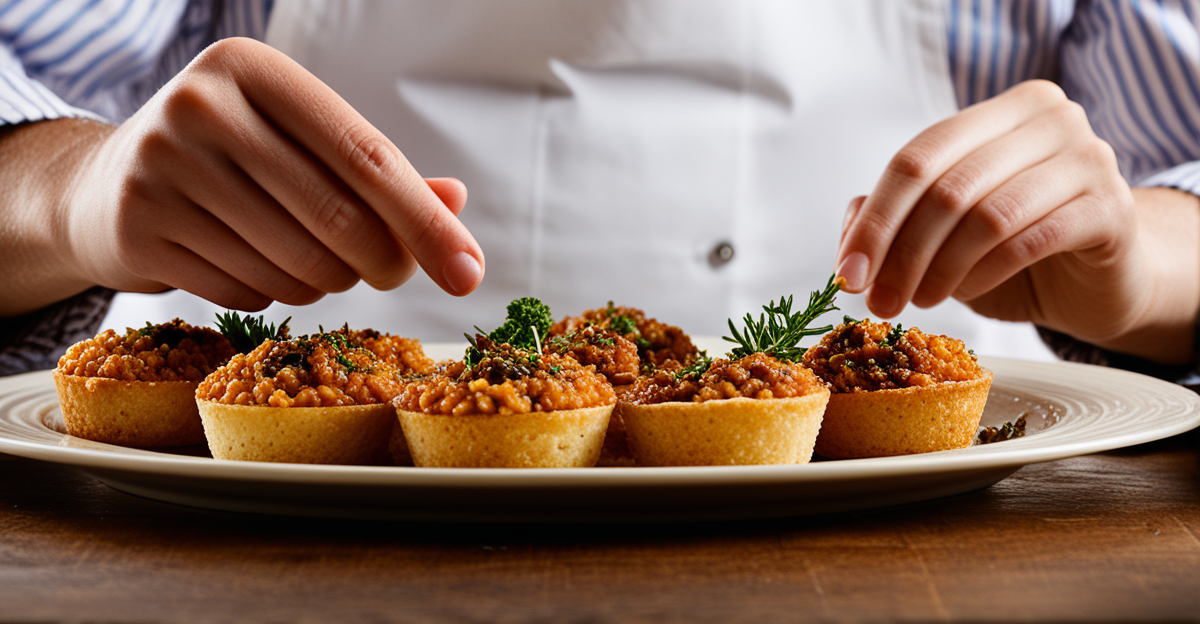Defining the Unique Identity of British Cuisine
British cuisine is distinguished by its traditional British cuisine, which emphasizes hearty, comforting meals with simple yet robust flavors. The unique British food culture is deeply rooted in a respect for local ingredients and time-honored preparation methods, setting it apart from other culinary traditions worldwide.
One of the essential characteristics defining British cuisine is its reliance on signature tastes of Britain, such as the subtle earthiness from root vegetables, the rich savoriness of roasted meats, and the mild sweetness found in many puddings and baked goods. Meals often feature balanced flavor profiles, combining umami meats with tender vegetables and complementary sauces.
Moreover, the British approach to dining centers on structured, communal meals like the iconic Sunday roast, reinforcing the cultural importance of family and togetherness. The nation’s food culture appreciates both the preservation of historic dishes and a steady evolution within its culinary identity. This blend of tradition and adaptability makes British cuisine uniquely its own while offering a comforting, familiar experience to those who enjoy it.
Defining the Unique Identity of British Cuisine
British cuisine stands out through its traditional British cuisine roots and distinct approach to flavors. It is defined by a rooted simplicity, focusing on hearty, wholesome meals that emphasize comfort and sustenance. The unique British food culture revolves around straightforward preparation methods that celebrate natural ingredient qualities without excessive embellishment.
The signature tastes of Britain often balance savory richness with subtle sweetness, such as in the use of gravy or malt vinegar. Classic cooking techniques like roasting meats, slow stewing, and baking shape much of the cuisine, yielding dishes celebrated for their depth and warmth. Meals are traditionally structured with a strong sense of ritual, often centered on family and communal dining.
This heritage fosters an appreciation for local produce and seasonality, underscoring a connection between the land and the table. Mealtime is not only about nourishment but also about shared experience, where each dish tells a story rooted in history and locality. British cuisine’s identity, therefore, is a blend of familiar comfort, straightforward flavors, and a deep cultural tradition that continues to evolve yet remains distinctly recognizable.
Iconic Dishes and Ingredients of Traditional British Cooking
Traditional British cuisine is celebrated for its classic British dishes that showcase the heartiness and simplicity central to British ingredients. Among the most beloved staples are the Sunday roast, featuring roasted meats like beef or lamb paired with root vegetables and rich gravy. Fish and chips remain an iconic takeaway dish, combining crispy battered fish with thick-cut fries, reflecting the coastal influence on British food culture.
Other hallmark meals include shepherd’s pie, a comforting blend of minced lamb topped with creamy mashed potatoes, and bangers and mash, illustrating the British affinity for meat and potatoes. These staple foods in Britain rely heavily on locally sourced produce, such as seasonal root vegetables—carrots, parsnips, and potatoes—and fresh dairy, including butter and cheeses that enrich many recipes.
The emphasis on local produce and seasonality strengthens the connection between British culinary traditions and the land, ensuring that meals are both fresh and rooted in place. This use of familiar, farmed ingredients defines the approachable yet satisfying nature of traditional British cooking.
Defining the Unique Identity of British Cuisine
British cuisine’s unique identity emerges from a blend of traditional British cuisine practices and a strong cultural connection to the land. The unique British food culture values simplicity, seasonality, and the natural flavors of local ingredients, which shape its signature dishes. What truly sets British food apart are the signature tastes of Britain—a careful harmony of savory roasted meats, earthy root vegetables, and subtly sweet accompaniments such as fruit-based sauces or puddings.
At the heart of British cooking is a focus on hearty, nourishing meals prepared with time-honored techniques that bring out depth without overwhelming complexity. This approach highlights why many British recipes emphasize roasting, stewing, and baking, methods which coax out rich and comforting flavors. Additionally, British meals often center on communal dining traditions, reflecting a cultural appreciation for shared experiences and family connection.
The signature tastes of Britain also arise from balancing savory, sweet, and sometimes tangy notes—think malt vinegar with fish and chips or the gentle sweetness of Christmas pudding. These qualities blend tradition and adaptability, giving British cuisine its timeless, distinctive character within the global culinary landscape.
Defining the Unique Identity of British Cuisine
British cuisine is marked by traditional British cuisine traits that prioritize simplicity and heartiness. The unique British food culture revolves around meals designed to nourish both body and spirit, often emphasizing comfort and familiarity. What truly sets it apart are the signature tastes of Britain—a harmonious balance of savory richness, mild sweetness, and subtle earthiness.
A distinctive feature is the careful layering of flavors achieved through traditional cooking methods, like slow roasting and stewing, which draw out depth without overwhelming spices. British dishes often combine a savory base—such as roasted meats or stewed vegetables—with complementary sauces or gravies, adding moistness and enhancing aroma.
Meals are structured with a social purpose, centering on communal eating and shared experience. This approach reflects the strong cultural value placed on family and togetherness, where food acts as a vehicle for connection. The unique British food culture also embraces seasonality and local produce, anchoring the cuisine in the landscape’s rhythms. Such defining characteristics elevate British cuisine beyond mere sustenance into a culinary tradition that is both comforting and distinctly proud of its roots.
Defining the Unique Identity of British Cuisine
British cuisine is defined by its traditional British cuisine roots, focusing on hearty simplicity and the celebration of natural ingredients. What sets this cuisine apart is its commitment to the unique British food culture, which values unpretentious dishes prepared through time-honored methods like roasting, stewing, and baking. These techniques emphasize bringing out the true flavors without unnecessary complexity.
The signature tastes of Britain combine savory, subtly sweet, and mildly tangy elements. For example, gravies and malt vinegar enhance roasted meats and fish, while puddings introduce gentle sweetness. This flavor balance is a hallmark, reflecting both the land’s produce and the nation’s culinary preferences.
British meals often have a structured rhythm, commonly featuring communal eating traditions such as the Sunday roast that embody social connection. The unique British food culture prioritizes family and togetherness, making mealtime an experiential ritual. Together, these factors create an identity that values warmth, comfort, and rootedness in local ingredients—qualities that remain consistently British across regions and generations.
Defining the Unique Identity of British Cuisine
British cuisine’s uniqueness lies in its traditional British cuisine roots, where meals emphasize straightforward, hearty nourishment. The unique British food culture prioritizes simplicity and comfort, reflecting deep ties to community and local environment. Central to this identity are the signature tastes of Britain, which skillfully blend savory richness with subtle sweetness and earthiness—an interplay rarely matched elsewhere.
What sets British cooking apart is its commitment to balanced flavors that highlight the natural qualities of quality ingredients without overpowering them. Techniques like slow roasting and stewing intensify these tastes, while sauces and gravies add moistness and aromatic depth. The British palate favors modest spice use, focusing instead on umami and mild seasoning.
The unique British food culture also honors the social function of meals, often structured around family gatherings or communal occasions, strengthening bonds and shared heritage. In this way, the identity of British cuisine is not just about what is eaten but how traditions and locality intertwine, turning traditional British cuisine into a meaningful experience that continues to evolve while keeping its distinctive signature tastes of Britain alive.
Defining the Unique Identity of British Cuisine
British cuisine’s unique identity is anchored in traditional British cuisine that balances simplicity with depth through the signature tastes of Britain. These tastes are defined by a harmonious blend of savory richness, mild sweetness, and earthy undertones, creating dishes that are comforting yet layered. This flavor profile often features roasted meats enriched by gravies, subtle use of spices, and accompaniments like malt vinegar or fruit-based sauces which complement but do not overpower.
The unique British food culture emphasizes meals as communal, structured events reflecting social bonds and family traditions, such as the iconic Sunday roast. This approach to dining goes beyond just eating; it values togetherness and ritual. Cooking methods like roasting, stewing, and baking are central, chosen to develop natural flavors and tender textures rather than masking them with complex seasonings.
Overall, the characteristics that set British cuisine apart include a commitment to local, seasonal ingredients, balanced flavor profiles, and a dining culture that connects people through shared experiences, all integral to the traditional British cuisine that continues to define the unique British food culture today.
Defining the Unique Identity of British Cuisine
British cuisine’s traditional British cuisine roots emphasize simplicity, heartiness, and a deep respect for local ingredients. These elements shape the unique British food culture, which values unpretentious yet satisfying meals. The signature tastes of Britain often showcase a harmonious blend of savory, subtly sweet, and earthy flavors, created through classic cooking techniques like roasting, stewing, and baking.
What distinguishes British food is its balanced flavor profiles—while spices are used sparingly, gravies, sauces, and puddings introduce varied textures and mild tanginess that enhance the main ingredients without overwhelming. The signature tastes of Britain also highlight freshness and seasonality, drawing from regional produce to maintain authenticity.
British meals are traditionally structured around communal dining, such as the iconic Sunday roast, underscoring the culture’s appreciation for gathering and sharing food. This social aspect reflects how the unique British food culture intertwines with its culinary practices, reinforcing not just nourishment but connection. Altogether, this identity blends historical tradition with evolving tastes, grounding British cuisine firmly in both place and community.








